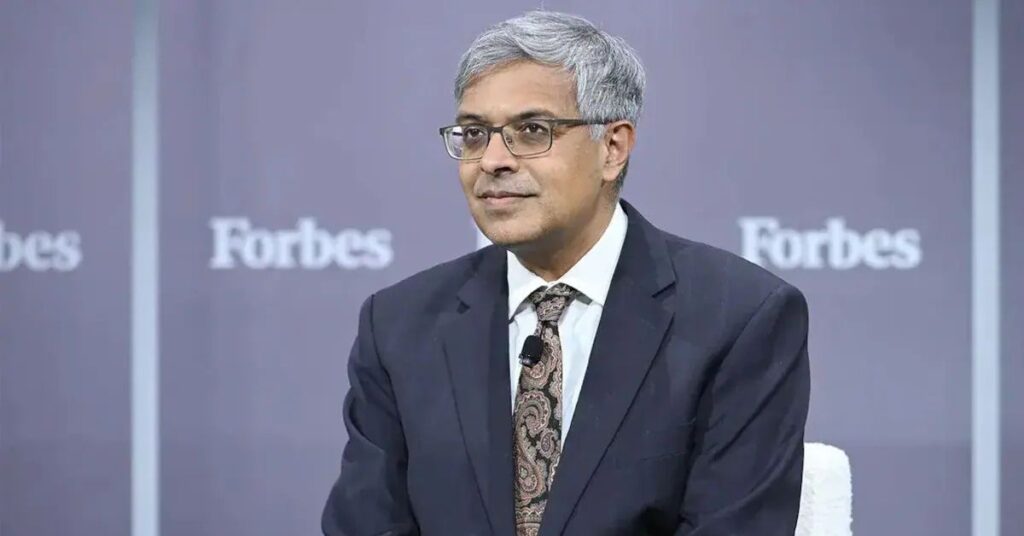Jay Bhattacharya, an Indian-American physician, economist, and professor at Stanford University, has been nominated by President-elect Donald Trump to lead the National Institutes of Health (NIH).
Known for his outspoken criticism of COVID-19 lockdowns and vaccine mandates, Bhattacharya’s appointment signals a transformative shift in U.S. public health policy.
His multidisciplinary expertise in medicine, economics, and health policy positions him as a unique figure in the ongoing debate about the future of healthcare in America.
Early Life and Education

Jayanta “Jay” Bhattacharya was born in 1968 in Kolkata, India, before immigrating to the United States as a child. He pursued his academic career at Stanford University, earning an MD in medicine in 1997 and a PhD in economics three years later. This rare combination of medical and economic training has allowed him to approach healthcare challenges from a holistic perspective, blending clinical insight with economic analysis.
Currently, Bhattacharya serves as a professor of medicine, economics, and health policy at Stanford University. He also directs the Center for Demography and Economics of Health and Aging at Stanford and is a senior fellow at institutions such as the Hoover Institution and the Stanford Institute for Economic Policy Research.
Professional Achievements
Bhattacharya is widely recognized for his extensive research on public health issues, particularly focusing on the health and well-being of vulnerable populations. His work emphasizes the role of government programs, biomedical innovation, and economic factors in shaping healthcare policies. Over his career, he has authored more than 130 peer-reviewed articles across disciplines such as economics, public health, law, and medicine.
In addition to his academic roles, Bhattacharya is a research associate at the National Bureau of Economic Research. His work has significantly influenced debates on healthcare economics and policy both within the United States and internationally.
The Great Barrington Declaration
Bhattacharya gained international prominence during the COVID-19 pandemic as one of the co-authors of the controversial Great Barrington Declaration. Published in October 2020 alongside Martin Kulldorff (Harvard University) and Sunetra Gupta (Oxford University), this open letter criticized widespread lockdowns as harmful and advocated for “focused protection.”
The declaration proposed allowing lower-risk individuals to live normally while protecting vulnerable populations through targeted measures. The goal was to achieve herd immunity through natural infection among low-risk groups.
While the declaration sparked significant debate—earning support from some policymakers but harsh criticism from many public health experts—it highlighted Bhattacharya’s willingness to challenge conventional approaches to pandemic management. Critics labeled it as impractical and unethical due to challenges in effectively shielding vulnerable populations while allowing widespread transmission.
Nomination as NIH Director
On November 27, 2024, President-elect Donald Trump announced Bhattacharya’s nomination as director of the NIH. The NIH is America’s premier medical research agency with a $48 billion annual budget supporting cutting-edge research across 27 institutes focused on diseases like cancer, diabetes, and infectious diseases.
In his statement, Trump emphasized Bhattacharya’s mission to restore trust in public health institutions alongside Robert F. Kennedy Jr., Trump’s nominee for Secretary of Health and Human Services. Together, they aim to address chronic illnesses, promote biomedical innovation, and reform scientific institutions to ensure transparency and accountability.
Bhattacharya expressed his gratitude for the nomination on social media, stating his commitment to reforming American scientific institutions to make them “worthy of trust again” while deploying scientific advancements to improve public health outcomes.
Controversial Views on Public Health Policies
Bhattacharya’s nomination has drawn attention due to his vocal criticism of pandemic-era policies:
- Lockdowns: He has described lockdowns as “the single biggest public health mistake,” arguing that they caused disproportionate harm to economically disadvantaged communities.
- Vaccine Mandates: Bhattacharya opposed vaccine mandates, claiming they eroded public trust in healthcare systems.
- Social Media Censorship: He was a plaintiff in Murthy v. Missouri, a case challenging federal suppression of conservative views on social media platforms during the pandemic.
Despite these controversies, Bhattacharya’s supporters praise his evidence-based approach and commitment to fostering open scientific debate.
Vision for the NIH
As the incoming NIH director, Bhattacharya is expected to prioritize several key areas:
- Restoring Public Trust: He aims to rebuild confidence in public health institutions by promoting transparency and encouraging diverse perspectives in scientific discussions.
- Chronic Disease Management: Addressing chronic illnesses like diabetes and cardiovascular disease will be central to his agenda. These conditions account for significant healthcare costs and mortality rates in the U.S.
- Biomedical Innovation: Bhattacharya plans to accelerate research into cutting-edge therapies while ensuring equitable access for underserved populations.
- Economic Considerations in Health Policy: Drawing on his expertise as a health economist, he advocates for policies that balance public health benefits with their social and economic impacts.




